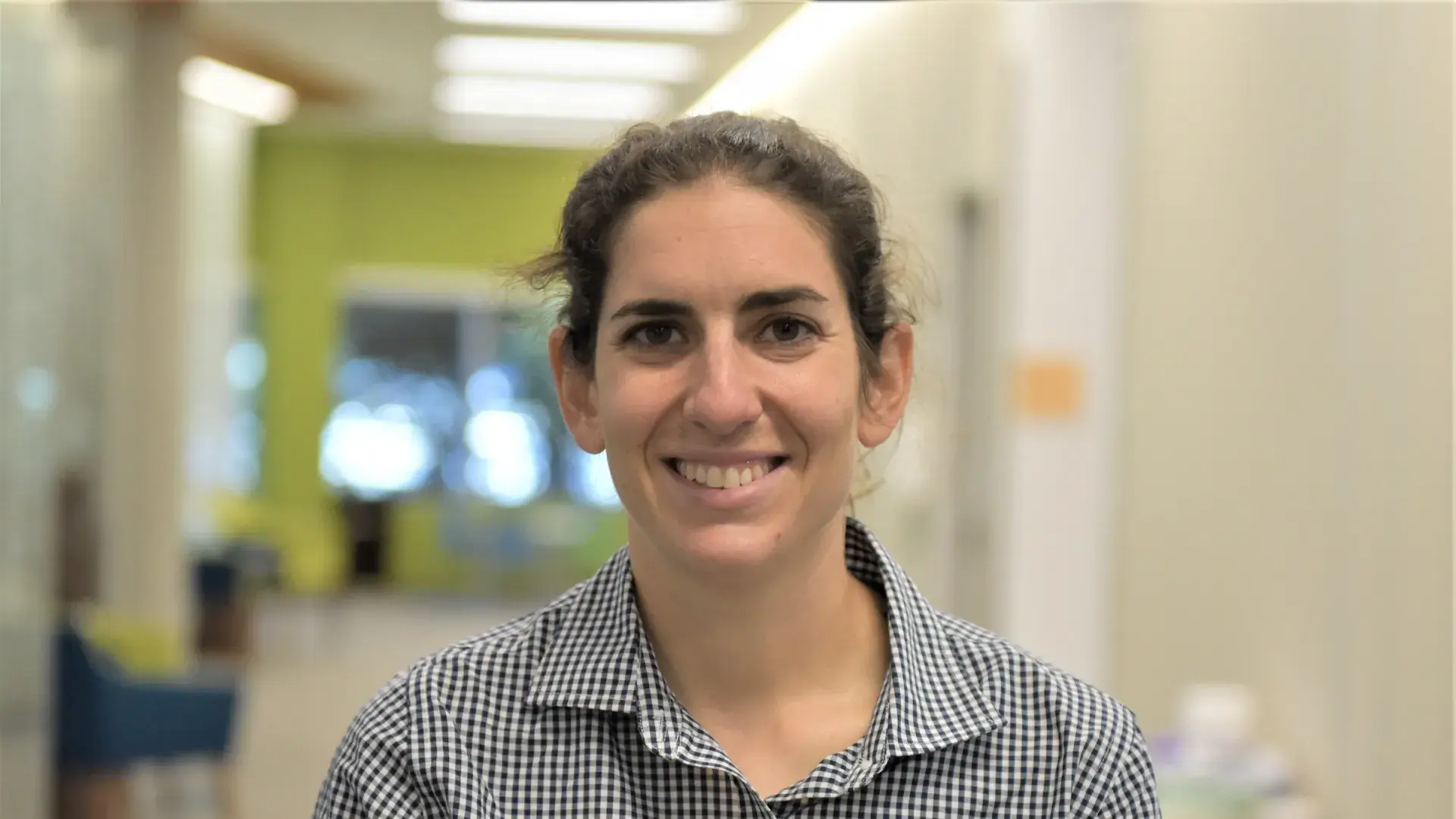
A project led by Ariel Schwartz, assistant professor of occupational therapy at MGH Institute of Health Professions, and Katherine McDonald, associate dean of research and professor of public health in Syracuse University’s Falk College, aims to help individuals with developmental disabilities affecting cognition contribute fully to community-engaged research. The project is supported by a funding award through the Eugene Washington PCORI Engagement Awards program, an initiative of the Patient-Centered Outcomes Research Institute (PCORI).
The field of patient-centered outcomes research broadly seeks to understand how our approach to health care is experienced by patients and what outcomes they value. Studies using a patient-centered outcomes approach (including participatory action research and inclusive research) involve patients and other stakeholders directly in the research to inform what to study, how to study it and what to do with the findings.
Most research in the United States that involves patients or other human participants must be approved by an Institutional Review Board (IRB), an independent group that seeks to protect and enhance research participant well-being. Importantly, those included in the research as advisors or data collectors and analysts must be trained in the principles of human participants research. However, the trainings that are available are often designed for scientists; individuals with advanced scientific education.
The project, Research Ethics for All, will work with people with developmental disabilities affecting cognition, researchers and IRB members to create and make freely available a new research ethics training that can be used by community research partners with developmental disabilities affecting cognition (for example, adults with intellectual disability and autistic adults).
“While it’s really exciting that more people with developmental disabilities are participating in community-engaged research, and patient-centered outcomes research in particular, most universities and academic medical centers aren’t set up to ensure that these research partners receive appropriate research ethics training,” says Schwartz. In the U.S., most research organizations rely on the Collaborative Institutional Training Initiative (CITI) Program to train individuals involved in human participants research.
“CITI training isn’t cognitively accessible to individuals with developmental disabilities—it expects users to understand scientific jargon and be able to engage in largely written online learning. While some universities have developed innovative trainings that are geared toward community partners, they also don’t address the needs of people with developmental disabilities that affect cognition. The lack of accessible training is a barrier to ensuring that these individuals are fully included in patient-centered and community-based research, as some research roles are restricted to those who have completed required research ethics training,” says McDonald.
Schwartz described: “Our goal is to work directly with people with developmental disabilities and other stakeholders to inform every stage of the project—this project came about because people with developmental disabilities spoke out about their negative experiences and needs. The training must be cognitively accessible to community research partners with a wide range of experiences, strengths and support needs—that means the information itself and the way the information is presented is understandable. Not only will the training utilize plain language and provide visual supports, but the content will also be delivered in a way that reduces cognitive demands for individuals who may have challenges with memory, abstract thinking and/or integrating information across multiple sources. In addition to being cognitively accessible, our goal is for the content and learning approach to be useful to researchers across a variety of universities and research projects.”
The project team includes experts in human participants research, cognitive accessibility, user experience and design, along with community members and researchers.
“The goal is to build stronger teams inclusive of community researchers with developmental disabilities. Some investigators may believe it is impossible to obtain IRB approval to include community researchers as data collectors and analytics or have partners complete required CITI training, creating a negative experience for many. Our training will be a resource that makes it possible to expand the role of community partners with developmental disabilities in patient-centered outcomes research—to ensure they can take on the full range of roles of community researchers, including conducting consent and collecting and analyzing information from people. We also hope that we will lessen experiences that are traumatizing or stigmatizing for partners who have been asked to complete CITI training. People with developmental disabilities have been told that they aren’t smart or competent and have experienced testing that ultimately excludes them from participation in an array of activities,” says McDonald.
“If we can limit these experiences and instead create those that convey respect and enhance learning, we will help foster fuller roles for people with developmental disabilities and enable their input on best practices related to how they experience all aspects of health care and outcomes of interest to them,” she adds.
According to Greg Martin, PCORI’s acting chief engagement and dissemination officer, “This project was selected for Engagement Award funding because it will build a community equipped to participate as partners in community-engaged research and develop partnerships and infrastructure to disseminate PCORI-funded research results. We look forward to working with Dr. McDonald and Dr. Schwartz throughout the course of their two-year project.”
This project and the other projects approved for funding by the PCORI Engagement Award Program were selected through a highly competitive review process in which applications were assessed for their ability to meet PCORI’s engagement goals and objectives, as well as program criteria. For more information about PCORI’s funding to support engagement efforts, visit their website.
PCORI is an independent, nonprofit organization authorized by Congress in 2010 to fund comparative effectiveness research that will provide patients, their caregivers and clinicians with the evidence needed to make better-informed health and health care decisions. PCORI is committed to seeking input from a broad range of stakeholders to guide its work.
